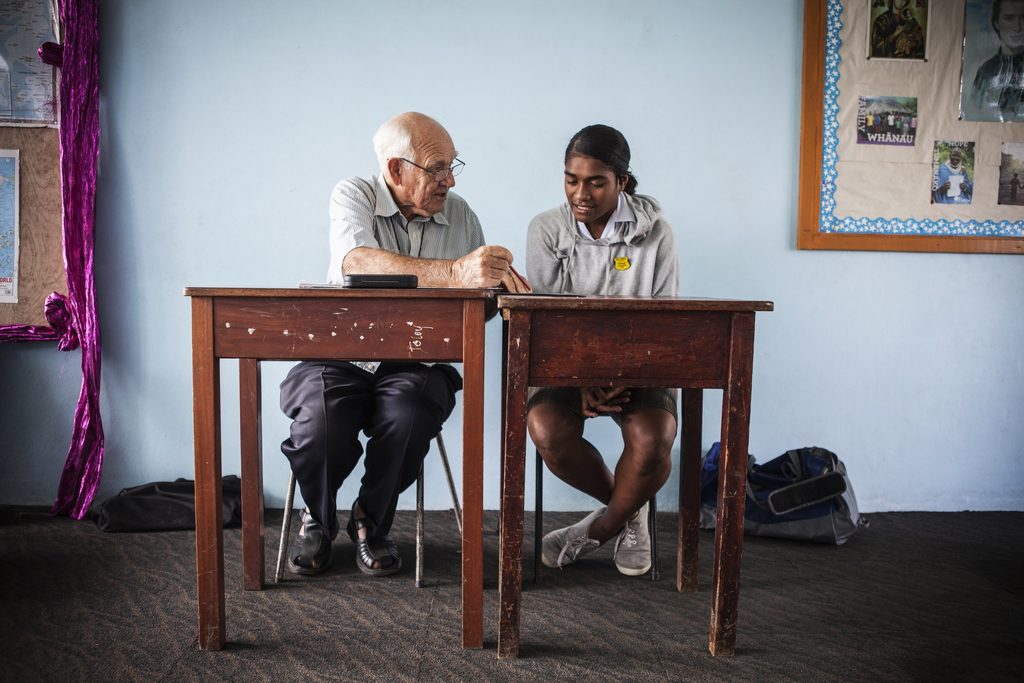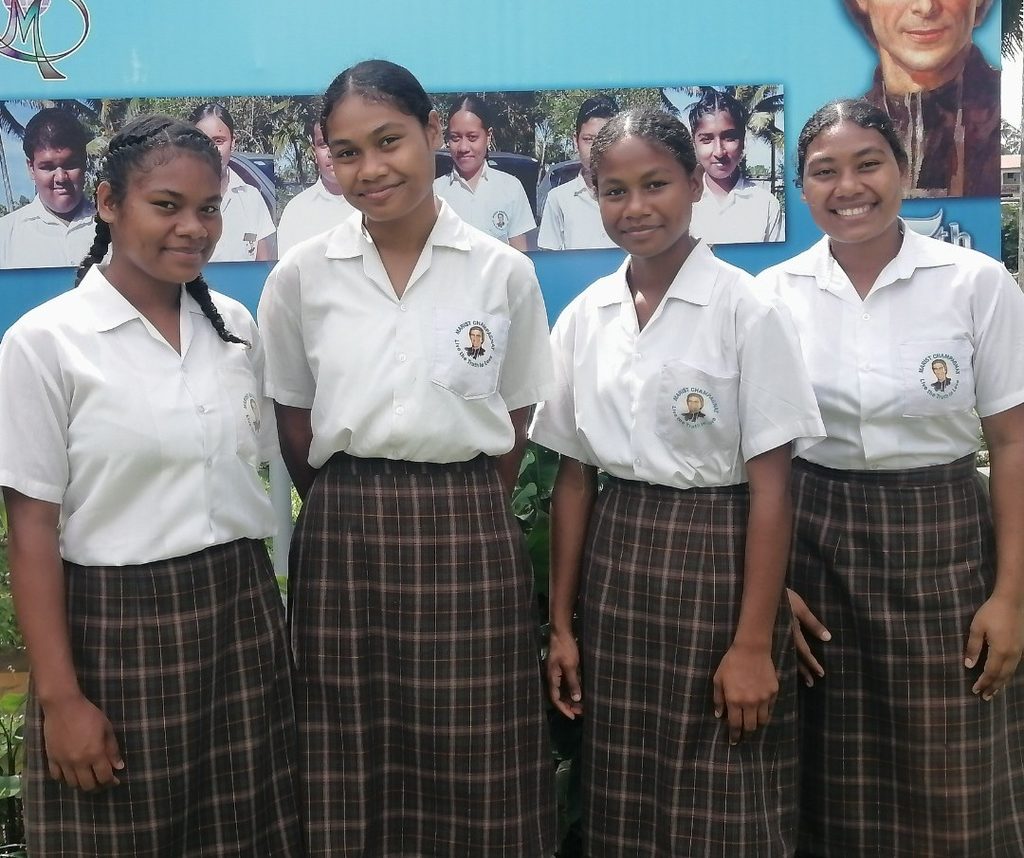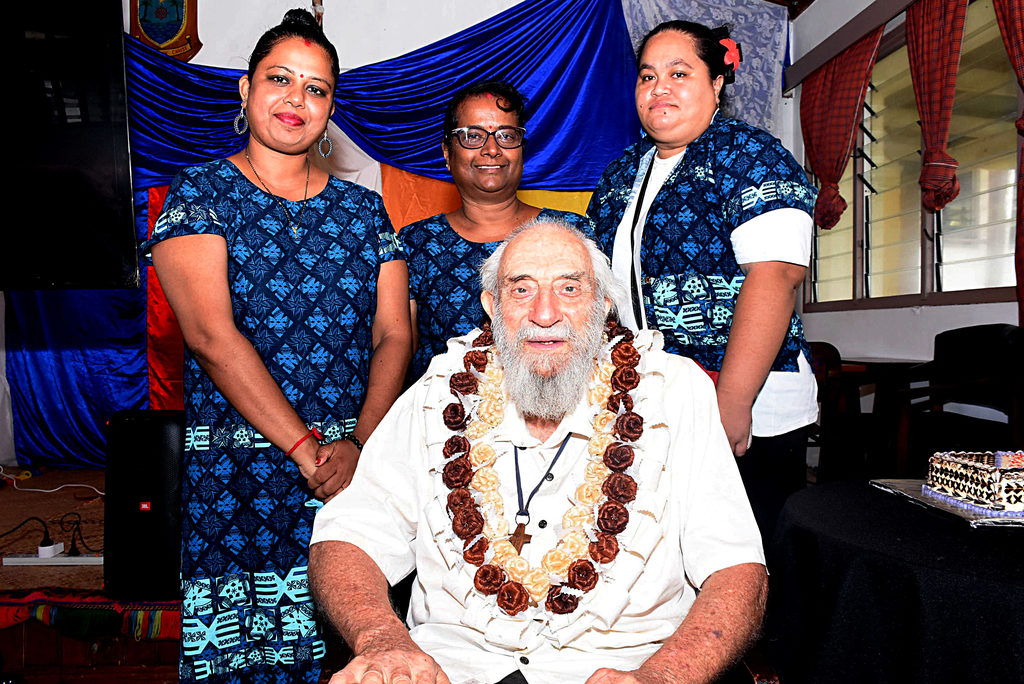After more than five decades of dedication to Fiji’s education sector, beloved educator Brother Fergus Garret was given a heartfelt farewell last Saturday at Corpus Christi Hall in Nasese, Suva.
Colleagues, former students, and well-wishers gathered to honour the man who has left an indelible mark on countless lives through his innovation, faithfulness and mentorship in education in Fiji.
Humble beginnings, from Aotearoa to Viti
Born in the rural backblocks of South Island, New Zealand, Brother Fergus grew up in a setting he describes as akin to village life in Fiji — no telephone, radio, or piped water. Tragedy struck early when he lost his father at six, leaving his mother and grandfather to raise him and his five siblings.
His journey to Fiji began in 1970, the year of the nation’s independence. Stepping off the plane in Nadi, he was immediately struck by the tropical heat which was an unforgettable introduction to his new home. Within hours of arrival, he was in a classroom at Marist Brothers High School, beginning a career that would span generations.
“I am older than independent Fiji,” he remarked with a smile.
“I saw the flag go up at the park. It’s been quite a journey.”
A colourful and impactful career
Brother Fergus’s contributions extended far beyond the classroom. After initial years at Marist Brothers High School, he pursued studies in Manila, Philippines before returning to oversee the training programme for new Marist Brothers.
He later assisted the archbishop in Suva while continuing to mentor young brothers.
His work took him across the globe; from Kenya, where he helped establish a tertiary program for Marist Brothers, to India, where he briefly worked before returning to Fiji to help found the Marist Champagnat Institute in 2000. The school, Fiji’s first secondary institution catering for students with special needs, is a living monument to his innovative spirit.
“We’re still recovering from that year,” he said, referencing the challenges of 2000, a turbulent period marked by Fiji’s political crisis.
Despite setbacks, the school has flourished, and Brother Fergus has remained deeply involved, particularly in counselling and supporting students with learning and behavioural challenges.
The legacy of Marist
When asked about the impact of Catholic education in Fiji, Brother Fergus highlighted the outsized influence of Marist institutions.
“Look at people in high places, many are Marist old boys,” he said, naming figures like Isikeli Mataitoga and Neil Sharma among others.
Though Marist schools have never been exclusively Catholic, their emphasis on discipline, academic excellence, and values has produced leaders across sectors, particularly in accounting, where Marist was once the only secondary school offering such a program.
He also noted the generosity of former students, such as one who funded a $600,000 classroom block from abroad for Marist Brothers Primary School.
“Catholic education has been very innovative,” he said.
“The Church is only 10 per cent of the population, yet look at how many schools we run and how we run them.”
Triumphs and trials
Reflecting on his most poignant memories, Brother Fergus spoke of both uplifting and heartbreaking experiences. One of his earliest encounters was a 1970 trip to Narokorokoyawa Village, where children had never seen a European person before.
But his most sobering recollections stem from the 2000 coup, when schools were shut and students returned traumatised. One student chillingly declared that the only mistake the Speight rebels made was “not killing Ratu Mara.”
Another wrote a harrowing eyewitness account of the murder of one of Fiji’s most wanted criminals, Alifereti Nimacere.
“Those were realities we had to help them cope with,” he said.
He also recalled students overcoming immense adversity, like one who arrived at Marist Champagnat struggling to read but later became a prefect and earned a scholarship to the United States.
“Second chances matter,” he emphasised.
Parting wisdom
As he steps into retirement, Brother Fergus says he will miss his connections with students the most.
“Teaching isn’t about the subject; it’s about the person. You have to understand where they’re coming from.”
His advice to aspiring educators? “One size does not fit all.”
He criticised the notion that all schools were the same, and stressed the need for individualised approaches.
“You don’t teach a subject, you teach persons.”
‘Be faithful in whatever you do’
When asked for a parting message, Brother Fergus turned to the words of Mother Teresa: “God doesn’t ask you to be successful, He asks you to be faithful. Do the job the best you can.”
This philosophy has guided his remarkable career which can be defined not by accolades and praise, but by the lives he helped shape and touch.
Though Brother Fergus enters retirement, his legacy will surely live on in the students he inspired and the teachers he mentored.
He will turn 91 in August.
Teaching isn’t about the subject; it’s about the person. Picture: SUPPLIED

The young women of the Marist Champagnat Institute, which was founded by Brother Fergus in 2000. Picture: SUPPLIED

Marist Brother Fergus Garrett with his Early Childhood Education staff members from left, Radhika Reddy, Ranu Kishore (middle) and Theresia Liah during his farewell celebration at the Corpus Christi Teachers College hall in Suva yesterday. Picture: KATA KOLI


